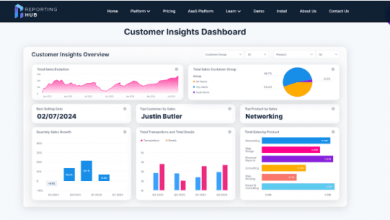What to Consider When Hiring an Online Accountant

In today’s digital-first world, you don’t need to sit across a desk to get great financial advice. Online accountants or freelance accountants use secure cloud tools, automation, and virtual meetings to deliver fast, accurate service at a fair price. But not all providers are equal. Here’s how to choose the right one, and avoid expensive missteps.
1) Credentials and real experience
Start with the basics: are they qualified, and have they done work like yours? Look for recognized designations (e.g., CPA, CMA, or your country’s equivalent) and ask about clients in your industry or business stage. A freelancer who’s helped SaaS founders through revenue recognition or an e-commerce brand through inventory and sales tax will spot issues long before they become problems. Don’t be shy about requesting references or a short portfolio of anonymized case examples.
2) Technology fit (without the tech headache)
Your accountant should meet you where you work. If your books live in QuickBooks or Xero, if you sell via Shopify, Stripe, or Amazon, or if you track jobs in a CRM, they should integrate smoothly—no messy exports or manual double entry. Bonus points if they leverage light automation (bank feeds, receipt capture, rules) to keep your books tidy in near real time. You shouldn’t have to learn five new systems to collaborate.
3) Security and confidentiality
Financial data is sensitive. The right provider will be explicit about how they protect it: encrypted file sharing, MFA on all logins, role-based access, and a signed confidentiality agreement. Ask where data is stored (and in which country), how long they retain it, and what happens if you decide to move on. Clear answers here are a good proxy for their overall professionalism.
4) Communication that matches your pace
Great accounting isn’t just accurate; it’s responsive. Agree on service-level expectations before you start: how quickly they reply, which channels they use (email, Slack, client portal), and when they’re available in your time zone. You want proactive updates, plain-English explanations, and regular check-ins, not surprises at tax time.
5) What’s included and what it costs
Clarity beats guesswork. Make sure the scope and pricing are transparent and aligned to your needs. A simple way to frame it:
- Scope: bookkeeping, reconciliations, monthly closes, management reports, sales tax, payroll, year-end tax, advisory.
- Pricing: flat monthly package vs. hourly; what counts as an “out-of-scope” project (catch-up work, system migrations, audit support) and how it’s billed.
This prevents mid-engagement friction and ensures you’re comparing apples to apples when evaluating multiple proposals.
6) Knowledge of your jurisdiction(s)
Taxes, payroll, and filings vary by country, state/province, and sometimes city. If you sell across borders or operate in multiple regions, confirm that your accountant can navigate those rules, or has trusted partners who can. Experience with your sales tax/VAT environment and local payroll compliance can save you time, penalties, and headaches.
7) Capacity today, and as you grow
Your needs will change. Maybe you’re adding inventory, expanding to new markets, or raising capital. Choose someone who can scale from “starter books” to a light CFO/advisory layer when you’re ready. Ask how they handle busy seasons, what happens if your transaction volume doubles, and whether they can support forecasts, budgets, and board-ready reports when you need them.
8) Reputation you can verify
Do a quick background check. Read reviews, scan LinkedIn, and look for consistent comments about accuracy, timeliness, and clarity. Two or three detailed, recent testimonials are more useful than dozens of generic stars. If a provider offers a short paid trial or a one-month pilot, even better, you’ll see how they work on your data.
9) Onboarding that sets you up to win
Strong providers run a crisp kickoff: access checklist, document requests, a mapping of your chart of accounts, and alignment on deadlines and deliverables. Expect them to clean legacy issues (old unreconciled balances, duplicate products, stale vendors) and establish a simple monthly cadence: when you deliver receipts, when they close the books, and when you meet to review results. Good onboarding is the difference between “organized” and “perpetually catching up.”
Red flags to avoid
A few patterns should give you pause: vague pricing, reluctance to sign a confidentiality agreement, slow replies during the sales process, or a promise to “fix everything” without first reviewing your current books. Also be wary of anyone who pushes a full software stack change before understanding your workflows, tools should serve the business, not the other way around.
The bottom line
Hiring an online accountant is more than outsourcing data entry, it’s choosing a financial partner. Prioritize credentials, tech fit, security, clear scope and pricing, local compliance knowledge, and an onboarding plan that makes month-end feel routine.
In an increasingly competitive business landscape, outsourcing accounting services from reputable providers such as Accountizer gives you financial clarity and peace of mind, helping your business stay lean, compliant, and profitable.


